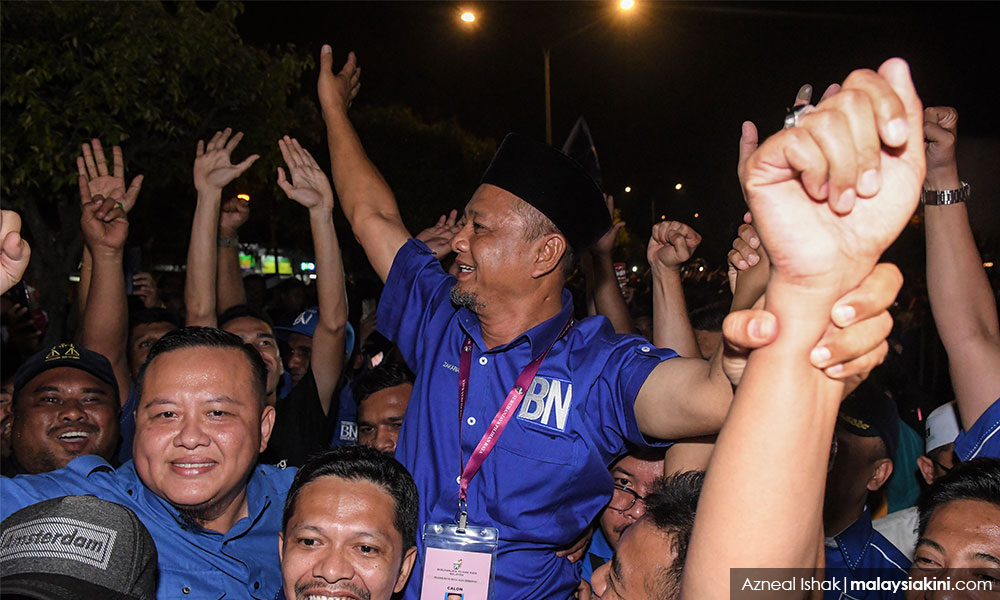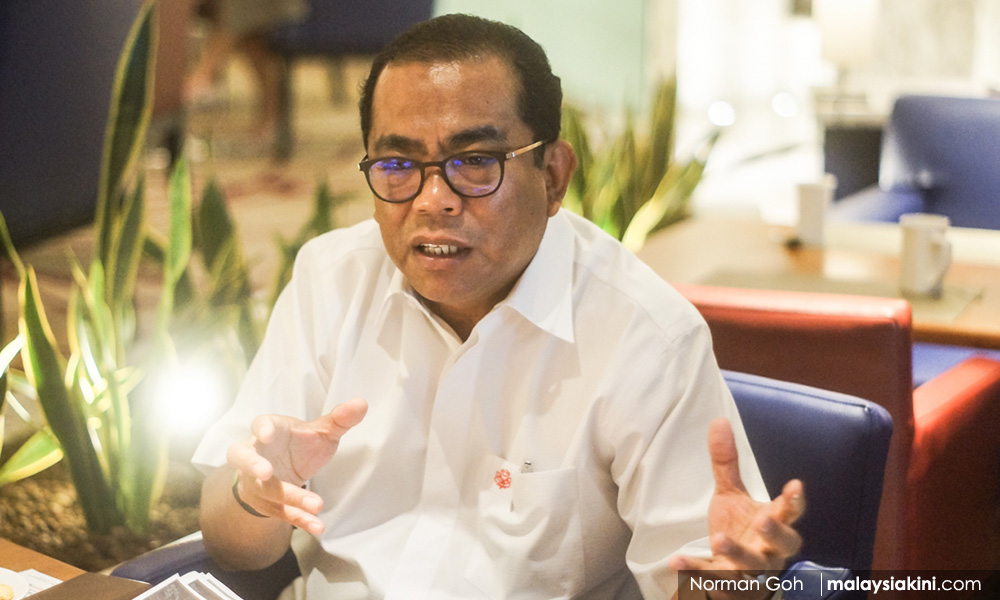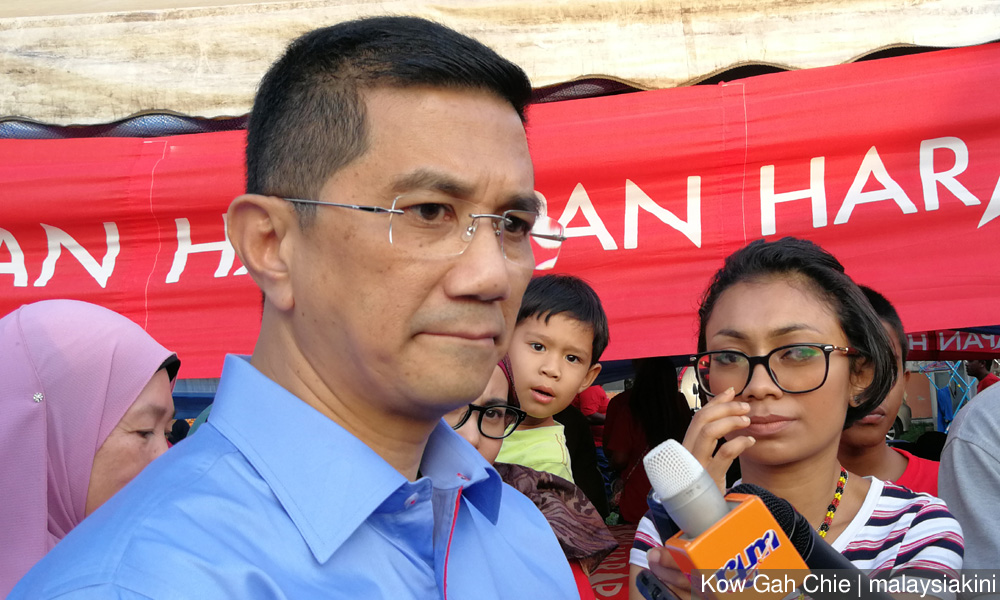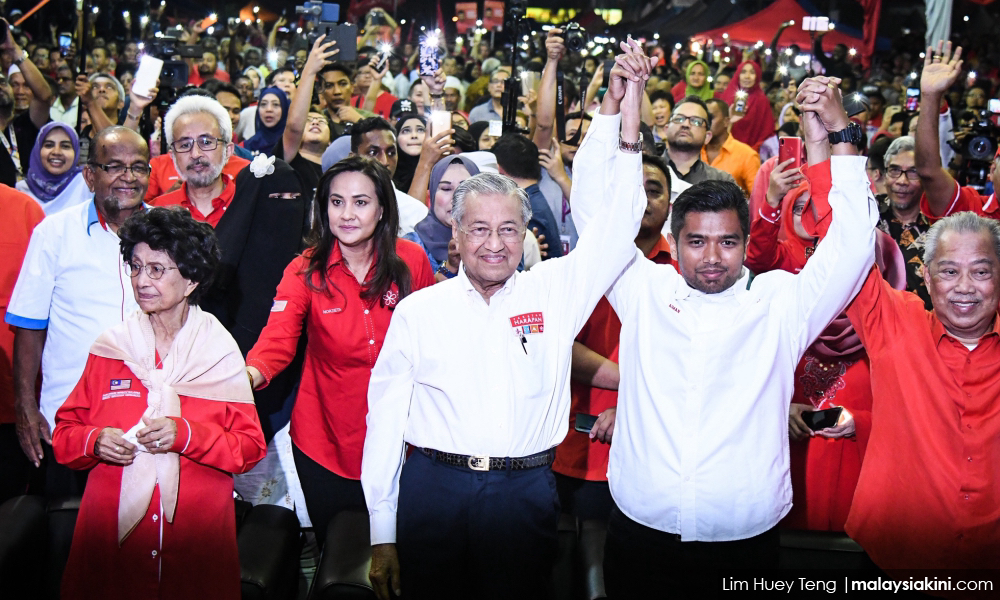
Published by Malaysiakini, images from Malaysiakini.
There can be no new Malaysia with old thinking.
In high-pressure situations, weaker, rattled minds panic, shoot from the hip, and shrink back to “tried and tested” thinking
Stronger minds and statesmen, on the other hand, don’t let their emotions overwhelm them. Instead, they take a step back and always keep an eye on the bigger picture.
Post-Semenyih, it seems all our politicians are scrambling for the nearest available explanation and starting to see everything through a racial lens. The phrase on everyone’s lips appears to be ‘the Malay votes’.
We’ll address the question of race in politics today, and tomorrow we will explore what Semenyih means for Malaysia’s political landscape.

Umno vice-president Khaled Nordin (above) put it most bluntly:
“The Malay voters have sent a clear message that even without the support of Chinese and Indian voters, a Malay (candidate) can still win if they share the same goal.
“Once the Malays have decided to unite towards a clear goal, the support of Chinese and Indians is no longer a deciding factor.
“Therefore, the Chinese and Indians actually have no other choice, but to find a way to work together with a dominant Malay political party,”
Umno secretary-general Annuar Musa, meanwhile, brought up the bogeyman of DAP, who he accused of being the cause of increasing racial polarisation.
MCA secretary-general Chew Mei Fun also took a swipe at DAP, saying that they were now helping Bersatu fulfil their bumiputera agenda.
Once again, we have two (former?) BN parties illogically accusing DAP of essentially doing two completely opposite things, both related to race.
The knee-jerk reactions of Harapan politicians
Harapan has not fared better.

PKR deputy president Azmin Ali (above) immediately said that Harapan must now fulfil the bumiputera agenda, and do so ‘without apology or (being) fearful of the criticism of others’.
One wonders exactly which ‘others’ Azmin is not so subtly referring to.
Amanah vice-president Mujahid Yusof Rawa, meanwhile, said that the challenge in the Rantau by-election will be that Harapan will continue to struggle for Malay votes, to regain the 20 percent votes it has lost in the last two by-elections.
“The main issues, which are cost of living and the Malay and Islam rhetoric, must be effectively addressed in the Rantau by-election,” said Mujahid.
We have here two high ranking cabinet ministers in the Prime Minister’s department proffering a knee-jerk reaction, basically saying that from now on, everything is going to be Malay, Malay, Malay.
Speculation vs data-driven analysis
The above quotes are a mere sampling. Essentially, everyone and his/her mother have an opinion of why Harapan lost in Semenyih.
I’d say it was due to the lack of a larger coherent narrative and roadmap about how we are making New Malaysia a reality, endemic internal infighting within Harapan, Bersatu’s poor choice of candidate and attempts to be more Umno than Umno, and the fact that by-elections in one-sided legislative assemblies like Selangor often favour the opposition.
All that said, I’ll be the first to tell you that my ‘considered opinion’ is barely worth the paper it’s written on. This is not false humility, I believe the same applies to almost any analysis that pops up like mushrooms after the by-election rain.
Some are thought to be based on considerable political experience and instincts, but no matter how good those may be, they are no replacement for solid, data-driven research, something my new job has given me a fresh appreciation for.
Without rigorous data-centric studies, any interpretation of why Harapan lost is ultimately speculative.
Worse yet, politicians are known to spin their own analyses based not on objective data, but based on which spin benefits them the most.
Race not politicised from ground up; politics racialised from top down
We see both sides reaching instinctively for the race card.
BN parties do this because it has always been not only their bread and butter, but their very raison d’etre.
It is sad, however, to see Harapan doing the same. This move backwards brings to mind panicked, headless chickens shrinking back to the safety of what they are most familiar with.
And what is Malaysia familiar with if not racial politics?

What politicians fail to realise is that it is not race that is politicised from the ground up, it is politics that is racialised from the top down.
BN has played this game for decades, and no one should be surprised they still play it now.
What is surprising is to see Harapan politicians – at a time when they should be leading boldly – scamper around weakly instead, dancing to their opponent’s racial tune.
It was as if BN was leading Harapan by the nose back to the dark days of old Malaysia, while Harapan lacks the gumption to resist and blaze their own path to this widely touted new Malaysia.
Racial politics succeeding because of leadership vacuum
I don’t have any problem with a bumiputera agenda, or a concerted effort by the government to ensure the welfare of the Malays is improved, alongside the welfare of all other Malaysians – especially the most vulnerable.
On every level however – political and moral – it is foolish for Harapan to get shaken, rattled and nervous at every by-election loss, and succumb in some panicked manner to putting race back at the centre of every political conversation.
It’s one thing to have internal discussions about various approaches to political strategy, it’s another to keep putting race politics at the forefront of public discourse.
Race is not the inherent primary political preoccupation of ordinary Malaysians – not until politicians try to make it so anyway.
All of us, regardless of skin colour, just want a fair opportunity to make a better life for ourselves, and to feel our government is a government of principles, vision and united strength.
When the government is showing a dearth in all of these, it creates a vacuum. And it is in that vacuum the racial politics of BN can successfully rear its ugly head again.
How we respond to this will determine who we truly are. Let’s hope Harapan realises this before it’s too late.
Nathaniel Tan is Director of Media & Communications at EMIR Research, an independent think-tank focused on strategic policy recommendations based upon rigorous research.

